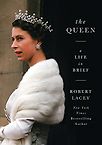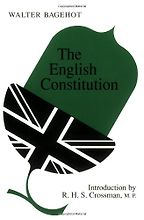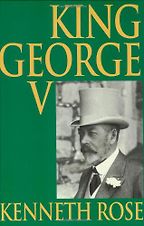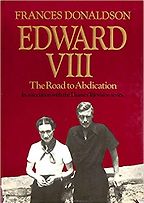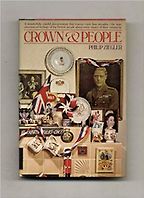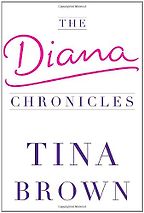You’ve studied Queen Elizabeth II and written books about her for many years. How would you personally describe her importance?
I think she gave the crown a lease of life that nobody expected—rather surprising us by proving the strength and importance of the monarchy. In my book on the Queen, I quote one of her private secretaries who says: “The function of the monarchy is to roll out a carpet of happiness.” That is what we saw in the Jubilee year. There is also the more serious matter of how our constitutional monarchy set about presiding over a coalition government, which was new to most of us in the 21st century.
What kind of role do you think she played in that?
She didn’t play the role that her grandfather George V played, of actually initiating the project, in the depression of the 1930s. But the way in which she preserved the monarchy and the crown as a dignified and impartial symbol of national identity made it possible for the two parties to come together, in a way that I think was the envy of quite a lot of other countries. The constitutional monarchy helps to preserve the civility of British political life, and avoid the sheer rancour and gleefully cultivated hatreds that make American politics so terrifying.
Your first book takes a more detailed look at the issue of the Queen’s role in British politics. The English Constitution, written in 1867 by the political journalist Walter Bagehot, shows us where the monarchy fits in with British politics—which is often a difficult thing to work out.
Bagehot was the first person to try to explain the recent evolution of the non-political, constitutional monarchy—what I sometimes call the ‘sentimental monarchy’ because of the part played by Queen Victoria and her promotion of respectable, family life. One hundred years before Bagehot, the monarchy was embroiled in all sorts of political conflicts and personal scandals. Victoria changed that with a style and with instincts that were remarkably close to those of Queen Elizabeth II. Both women displayed the same sense of duty and willingness to subordinate themselves.
Bagehot identified the way the monarchy had undergone this sea change, and was now the impartial referee and the dignified symbol of what people could agree upon in national life. One of the interesting things about Queen Victoria is that in later years, if she couldn’t be bothered to go and open Parliament herself, she would just send the crown on a cushion. This symbolised her understanding that the crown was above everything including herself. I think that same sort of essential modesty was the reason for Queen Elizabeth II’s success. She spent the first 10 years of her life as part of the royal family but with no idea that she would one day come to the throne. So while she developed a great seriousness and respect for the monarchy, her head was never turned. I think her modesty and self-effacement are major reasons for her enduring popularity.
To put it in perspective, as you describe in your book, Queen Elizabeth II was effectively very similar to Princess Beatrice, the eldest daughter of Prince Andrew, in that she was royal but not directly in line to the throne.
Yes. Her father was the Duke of York—a title that is traditionally given to a younger son of the king. So to begin with she had no chance of succession.
One person who had a great deal of influence on Queen Elizabeth II was her grandfather, George V. What can Kenneth Rose’s book tell us about him?
My principal reason for putting Rose’s study of George V on my list is that I consider it the best royal biography ever written. It is a classic which is full of insight and humanity, along with dry wit and revelation. There had previously been an official biography of George V by Harold Nicolson, and Kenneth Rose was able to get hold of the Nicolson papers, where he discovered quite a lot of material that Nicolson had diplomatically left out.
Such as?
It was Kenneth Rose who revealed that the British government had a plan to rescue the deposed Russian royal family, and that it was stopped by King George V and Queen Mary because they thought that bringing the Tsar and his wife to England would destabilise the British monarchy. In 1917 and 1918 the Russian monarchy vanished, the German monarchy vanished and the Austrian monarchy went as well. The three great remaining European monarchies were swept away.
So the British monarchy was feeling vulnerable?
Yes. People at Buckingham Palace tried to stop Kenneth publishing this revelation, and other revelations in the book, until his manuscript was shown to the Queen. ‘Let him publish,’ she wrote across the top of the draft, without requesting a single change. Elizabeth II was a very open-minded person who saw that the facts were the facts. She did not see the film The King’s Speech about her father’s problem with stuttering, and there were some people in the family who disapproved of it. But the basic facts of the film about Lionel Logue, the Australian speech therapist, were all revealed in the official biography of George VI, which the Queen originally commissioned and approved. She was very keen that these details should come out.
What about the Queen’s relationship with George V?
I think that the Queen learnt her public relations skills from George V. On the outside he was very stuffy and conventional, but he was also very nimble and responsive. He grasped that in order for the monarchy to survive it was crucially important that it should no longer sit on top of some social pyramid of aristocracy, middle class and lower class. That was all crumbling in the early 20th century. If the monarchy was to survive, its basic support had to come from the bottom. The monarch had to create and foster a direct personal link with the people.
Which Queen Elizabeth very much did.
Yes, and George V also did. He started the royal broadcasts and giving out honours such as OBEs and MBEs, which are essentially titles, distinctions and medals for ordinary civilian folk.
Your book also shows his fondness for Queen Elizabeth II. She seems to have been a bit of a favourite.
Yes. George V did not get on very well with his own children. He was a very gruff, old-fashioned parent. But, as is often the case with such parents, he was a loving and indulgent grandfather.
Now to a book about the man who changed the Queen’s destiny—Frances Donaldson’s biography of Edward VIII, first published in 1974.
I think this is the definitive biography of Edward VIII. There have been others, notably by Philip Ziegler, who wrote the official biography. But Frances Donaldson’s is the one which best captures the ambiguous spirit of Edward VIII. I have put it on the list for two reasons—because of its shrewd depiction of the king’s character and failings, but also because those were the mechanical reasons that propelled the little Princess Elizabeth into the main line of succession.
Get the weekly Five Books newsletter
When Edward VIII abdicated in order to be able to marry the American divorcee Wallis Simpson, his younger brother Bertie, Elizabeth’s father, became king. There were 12 incredibly dramatic months in 1936 when Britain actually saw three kings in one year—George V, Edward VIII and, by the end of the year, George VI. In that time, little Princess Elizabeth went from being on the sidelines to becoming the heir to the throne. It was quite an extraordinary transformation, and the turning point of her story.
Did Edward VIII get on with his niece Elizabeth?
The two little princesses Elizabeth and Margaret Rose, her younger sister, adored their playful uncle who was so very dashing and handsome. Queen Elizabeth always used to talk about him as her favourite uncle. But Edward proved to lack the grit, application and sense of sacrifice which is so crucial to being a monarch. In the case of Queen Elizabeth, we were able to see her willingness to subordinate her own life to duty, in her two families of children. She started with Charles and Anne and was planning more. But then her father died unexpectedly. So she suspended childbearing for the best part of a decade until she had played herself in as queen—when she produced Andrew and Edward.
Edward VIII actually lived to see Elizabeth become queen. Is there any record of how he thought she managed?
He clearly felt that Elizabeth understood and embodied all the dignity of the monarchy. I have a story in my book about how he pulled himself together in his dying days, when Elizabeth went to see him while she was in France. He insisted on getting dressed and bowing to her, even though he was being kept alive with tubes which had to be concealed under his clothing.
And she was very respectful towards him, in terms of making sure he had a proper funeral and treating his widow Wallis Simpson properly.
Yes, there is a lovely story of how gentle and understanding Queen Elizabeth was towards Wallis Simpson at the time of the Duke of Windsor’s funeral. Wallis was an object of hate to Elizabeth’s mother, the Queen Mother, but Elizabeth rose above that.
Your next choice is Philip Ziegler’s Crown and People.
This is a highly original study by Philip Ziegler, who wrote the authorised biographies of both Edward VIII and Mountbatten, both of them excellent books. What is interesting about Crown and People is that Philip rediscovered the Mass Observation archive, which started in 1937 as a British left-wing response to American public opinion polls. It was an attempt by a group of quite radical intellectuals to put their fingers on the pulse of British sentiment and popular feeling. What they discovered, rather to their chagrin, was that the best occasions to find the British people expressing themselves were royal ceremonies like coronations and jubilees.
Mass Observation doesn’t exist anymore, but Sussex University took over the archive and I have spent a lot of time down in Brighton, researching what ordinary people were thinking about the monarchy. For example, the role that it played during the Second World War in keeping up national morale. There was Mass Observation for the Silver Jubilee of 1977, so Crown and People concludes with popular reactions to Queen Elizabeth’s first Jubilee. She had another three before she died in 2022. Mass Observation is a remarkable historical archive of not-so-changing British attitudes towards the monarchy.
Although she was obviously very popular, I think it is fair to say that Queen Elizabeth had her ups and downs in terms of people’s perceptions. A low point, it could be argued, was her relationship with Princess Diana—which is discussed in your final book, The Diana Chronicles by Tina Brown.
Diana is such a major figure in the history of the British monarchy and also in British popular culture. Her death and the week before her funeral were an absolutely crucial moment in the history of the monarchy and its relationship to the people—and Queen Elizabeth herself played the central role in that, as I describe in my own book.
Five Books interviews are expensive to produce. If you're enjoying this interview, please support us by donating a small amount.
Tina’s book captures Diana with such raciness, charm and insight. The book is based on incredible research. One of Tina’s strengths is that she is a great British journalist who has been living in America for many years. So she embodies that slightly bemused and admiring attitude of America toward the British monarchy. I think some Americans almost wish they had a monarchy—and, of course, they do. The American president gets selected by an arduous and ludicrously expensive and drawn-out electoral process. Then he—not yet she—is promptly turned into a monarch, complete with a First Family and all the trappings of empire. If you happen to be called Kennedy or Bush you are treated as part of a royal dynasty, and you are entitled to be considered for future succession.
How does Tina Brown define the relationship between Queen Elizabeth and Diana?
One of the things you see in The Diana Chronicles is the way in which there was more fondness and closeness between Diana and Queen Elizabeth than people realise. Queen Elizabeth, if only through a sense of duty, bent over backwards to support her daughter-in-law through her early difficulties. Right at the start of the marriage, she realised something was wrong and brought in the best medical and psychological help she could. She talked to the newspaper editors and tried to get them to lay off Diana and create less pressure, although she didn’t realise in those early days the full horror for Diana of the fact that Charles had given his heart to someone else—Camilla Parker Bowles.
And what does Tina Brown say that Diana felt towards Queen Elizabeth?
Tina has some very good quotes showing Diana’s respect for Queen Elizabeth. But she also shows how, when Diana gave that famous interview saying how she wanted to be ‘queen of people’s hearts’ that, consciously or subconsciously, she was issuing a challenge to the Queen and had taken a step too far.
Despite Queen Elizabeth’s somewhat fraught relations with various people, such as Princess Diana and to some extent Prince Charles, one thing she truly excelled in was her role as a grandmother.
Yes, and this is a major theme of my book. In the speech she gave the day before Diana’s funeral she uttered that memorable phrase, “Speaking to you as your Queen and a grandmother”. There had been no plan until the day before for her to speak, and she did the two things which she hates most—broadcasting, and revealing her feelings. She reminded everybody that yes, she was the country’s queen, but she was also grandmother of these boys who had lost their mother in such tragic circumstances, and that her first priority that week was to look after the boys.
Which is why she had stayed up in Scotland with them rather than coming down to London—which the public were increasingly unhappy about.
The public wanted Queen Elizabeth to be their mummy or grandmother—while she felt that her first duty was to her grandsons. We can relate to that as a touching human family response, but of course it has turned out to be a major factor in the ongoing strength of the monarchy. Despite the difficulties that Queen Elizabeth had in her relationship with Prince Charles, she got on extremely well with her grandchildren. In this she is perhaps a bit like her grandfather, George V. She had a marvellous relationship with both William and Harry, and helped bring them up as model characters, in most people’s eyes, for the future of the monarchy. Whatever doubts people may have about Princes Charles, they feel that the long-term future of the monarchy is in very safe hands with William and Catherine, and Harry as a backup.
What kind of influence do you think Queen Elizabeth had on the rest of the world?
People in Britain, and indeed in America, forget that Elizabeth II was not just queen of Great Britain but also queen of many other realms, such as Australia, Canada and New Zealand—for whom she is, in fact, Elizabeth I. She is head of the Commonwealth, a family of 54 different countries which used to be just members of the British Empire. But now you get African countries like Angola, never in the British Empire, that want to join the Commonwealth—which is a great tribute to the Queen.
I often like to remind Americans that while Queen Elizabeth went to America three or four times officially in the course of her reign, in that same period she went to Canada over 20 times, because she was of course the Queen of Canada. I think one of the reasons why Canadians are so fond of the Queen and the monarchy is because it is what distinguishes them from America. Although, of course, she paid quite a few private visits to Kentucky to inspect the racehorses there, which were her great passion in life.
How would you sum up the importance of Queen Elizabeth II?
I think the Queen was Britain’s number one asset as a focus of British history and past glory, while also showing our ability to change and adapt to the modern world, in the same way as she was able to do.
———————————————–
Editor’s note: In 2022 the UK is celebrating the Queen’s Platinum Jubilee, marking her seven decades on the throne. The result has been a host of new books on her life and reign, including Robert Hardman’s Queen of Our Times: The Life of Elizabeth II, Andrew Morton’s The Queen (apparently not available in the US), and Tina Brown’s The Palace Papers: Inside the House of Windsor. For an older biography recommended by historian Diarmaid MacCulloch among others, it’s also worth considering The Queen: Elizabeth II and the Monarchy.
Five Books aims to keep its book recommendations and interviews up to date. If you are the interviewee and would like to update your choice of books (or even just what you say about them) please email us at [email protected]

